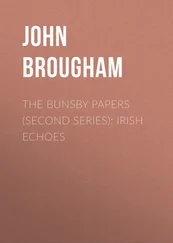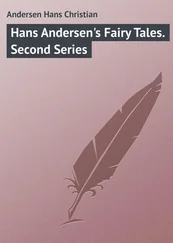Henry Wood - Johnny Ludlow, Second Series
Здесь есть возможность читать онлайн «Henry Wood - Johnny Ludlow, Second Series» — ознакомительный отрывок электронной книги совершенно бесплатно, а после прочтения отрывка купить полную версию. В некоторых случаях можно слушать аудио, скачать через торрент в формате fb2 и присутствует краткое содержание. Жанр: foreign_prose, literature_19, foreign_antique, на английском языке. Описание произведения, (предисловие) а так же отзывы посетителей доступны на портале библиотеки ЛибКат.
- Название:Johnny Ludlow, Second Series
- Автор:
- Жанр:
- Год:неизвестен
- ISBN:нет данных
- Рейтинг книги:3 / 5. Голосов: 1
-
Избранное:Добавить в избранное
- Отзывы:
-
Ваша оценка:
- 60
- 1
- 2
- 3
- 4
- 5
Johnny Ludlow, Second Series: краткое содержание, описание и аннотация
Предлагаем к чтению аннотацию, описание, краткое содержание или предисловие (зависит от того, что написал сам автор книги «Johnny Ludlow, Second Series»). Если вы не нашли необходимую информацию о книге — напишите в комментариях, мы постараемся отыскать её.
Johnny Ludlow, Second Series — читать онлайн ознакомительный отрывок
Ниже представлен текст книги, разбитый по страницам. Система сохранения места последней прочитанной страницы, позволяет с удобством читать онлайн бесплатно книгу «Johnny Ludlow, Second Series», без необходимости каждый раз заново искать на чём Вы остановились. Поставьте закладку, и сможете в любой момент перейти на страницу, на которой закончили чтение.
Интервал:
Закладка:
“Thank you for all, Johnny,” she cried, wringing my hand as she went down the path. “They were all very kind to me yesterday, but it seemed that you were kindest.”
In the next minute, both of them, with the door shut, and the carriage away towards South Crabb Junction. The people cheered, the cocks crew, and the old shoes flew after them in a shower.
VI.
HARDLY WORTH TELLING
You remember what I, Johnny Ludlow, said in the last paper—that on our way to Timberdale Court we met with an adventure, which I had not then time to tell of. It was this.
After our race through Crabb Ravine by moonlight, looking for Robert Ashton, we went on to Timberdale Court as fast as the snowy ground would admit of, Joseph Todhetley and Tom Coney rushing on in front, I after them—they were older and stronger than I was. Not by the ordinary highway, but over fields and hedges and ditches, straight as the crow flies, wishing to save time. Instead of saving time, we lost it, for though the road, had we taken it, was longer, the snow was beaten there; whereas it was lying deep across the country and had to be waded through. But you can’t always bring common-sense to bear at the moment it’s wanted. And if we had looked like three undertakers at a funeral, stalking after one another in the Ravine, with our dark coats showing out against the white snow, I’m sure we must have looked still more like it in the open ground.
At the far corner of the square meadow was a cow-shed, unused since the autumn, when Ashton of Timberdale had caused the fields about here to be ploughed. Beyond the shed, touching its walls, ran a brook; and it brought us up. We had meant to take it at a flying leap; but the snow had melted there, and the brook was swollen. It was not agreeable to run the chance of pitching in, and it seemed that we should have to make for the gate, lower down. Standing for a moment to reconnoitre, there broke on our ears a low moan; and then another.
“I say,” cried Tod, “is that the ghost?” I said in that last paper, as any one may see, that we had looked out for the ghost in the Ravine. The moaning came again.
“If I don’t believe it is in the cow-shed!” exclaimed Tom Coney. And he went round to the door and shook it open.
Pitch dark inside and the same moaning, soft and low. Tom Coney had some lights in his pocket, and struck one. Well! we were astonished. On the ground lay a woman—or girl—and a very little child. She had a young face, with anxious eyes and feverish cheeks. She said she was dying, and so answered our questions; but we had to kneel down to hear her. She had walked across the country from somewhere in Gloucestershire, carrying her baby of a fortnight old, but the weakness and fever overtook her. Two nights ago she had crept into the shed, and lain there, unsuspected, ever since.
“But why did you leave your home?” inquired Tod.
“I couldn’t stay for the shame,” was the nearly inaudible answer: and but that our ears were good ones, we should not have caught it. If we would but fetch her a drop of water for the love of Christ, she said, as we got up.
It was impossible to help wondering whether God had not allowed Robert Ashton to be lost on purpose to bring us round there. But for our passing, both she and the baby must very soon have died, for the shed was quite out of the reach of any road likely to be traversed. We must have seemed to her like angels of mercy. Perhaps we were made use of as such that night.
“Have you lain here all that time—two nights and days—without food?” asked Tod, in his softest voice.
“Without food, sir, and without drink. Oh, for a drop of water! If you could only bring it me, I should die easier.”
We got some clean snow and moistened her lips with it. She gave a sobbing cry as it trickled down her throat: Tom Coney said it was choking, but I thought it was joy. To a poor creature in a burning fever, lying without any sort of drink for days and nights, the fresh cold snow must have tasted like dew from heaven. She motioned that the baby should have some, but we were afraid: it looked to be dying.
What could be done with her? To carry her away was not practicable—and she seemed too ill besides. Tom Coney offered to cover up the baby under his coat and take it to the Court for food and shelter; but she clutched it closer to her side as it lay on her arm, and faintly said it couldn’t do without her. Shutting the shed door again, we got quickly to Timberdale Court, found Robert Ashton was not at home, as you heard, and asked for the housekeeper, Mrs. Broom.
She was sitting in her little carpeted room, off the big kitchen, with one of the maids. They were sewing white bows on a lot of caps, and wondering what had become of the master. To be burst in upon by us, all three telling the story at once of the woman and child, pretty nearly scared good old Mother Broom’s senses away.
“You are just playing a trick upon me, young gentlemen.”
“It is as true as that we are here, Mrs. Broom; it is true as gospel. They’ll both be dead if something’s not done for them.”
“Well, I never heard of such a thing,” she exclaimed, beginning to stir about. “Lying in that cow-shed for two days without help! You ought to have brought the poor baby away with you, sirs.”
“She wouldn’t let it come.”
“I wouldn’t have minded her saying that. A fortnight-old baby lying in the shed in this cold!”
“I don’t think it will make much difference in the long-run, whether the baby stays in the shed or comes out of it,” said Tom Coney. “If it sees to-morrow’s dawn, I shall wonder.”
“Well, this is a fine start!” cried Mother Broom. “And the master never to have come home—that’s another,” she went on. For, what to do, she didn’t know the least in the world, and was like a woman with a lost head.
We left the matter to her, carrying some things to the shed as we passed it on our way home—blankets and a pillow, fresh water, milk-and-water for the baby, and a candle and matches. One of the women-servants was to come after us, with hot broth and wine.
When we reached Crabb Cot, the dismay there at hearing Robert Ashton had not turned up, was diversified by this news, which we told of. Not that they thought very much of it: the woman was only a poor tramp, they said; and such things—fevers, and that—happen to poor tramps every day.
“Do you think the baby’s dying?” asked Charles Ashton, the parson.
“I’m nearly sure it is,” said Tom Coney.
“That’s a kind of woman, you know, that ought to be committed for fourteen-days’ hard labour,” observed the Squire, fiercely, who was in a frightfully cross mood with the various mishaps and uncertainties of the evening. “Seems to be very sickly and humble, you say, Mr. Johnny! Hold your tongue, sir; what should you know about it? These women tramps bring death on their infants through exposure.”
“And that’s true,” said old Coney. “I’d punish ’em, Squire, if I were a magistrate like you.”
But what do you think Parson Ashton did? When the dog-cart had taken him and Mr. and Mrs. James Ashton to the Court—where they were to stay all night—he started off for the shed, and did not come away from it until he had baptized the baby.
We heard nothing more about it until the next day—and I don’t suppose any one has forgotten what sort of a miserable day that was, at old Coney’s Farm. How the wedding never took place, and Robert Ashton was still missing, and Jane Coney was dressed in her bridal robes for nothing, and the breakfast could not be eaten, and we guests staring in each other’s faces like so many helpless dummies. What news we had of it then, came from Charles Ashton: he had been to the shed again that morning. Whilst the carriages stood waiting at the gate, the post-boys’ scarlet jackets flaming in the sun, and the company indoors sat looking hopelessly for the bridegroom, Parson Ashton talked about it in a corner to Mrs. Coney and the Squire’s wife: both of them in their grand silk plumage then, one plum-coloured, the other sea-green, with feathers for top-knots.
Читать дальшеИнтервал:
Закладка:
Похожие книги на «Johnny Ludlow, Second Series»
Представляем Вашему вниманию похожие книги на «Johnny Ludlow, Second Series» списком для выбора. Мы отобрали схожую по названию и смыслу литературу в надежде предоставить читателям больше вариантов отыскать новые, интересные, ещё непрочитанные произведения.
Обсуждение, отзывы о книге «Johnny Ludlow, Second Series» и просто собственные мнения читателей. Оставьте ваши комментарии, напишите, что Вы думаете о произведении, его смысле или главных героях. Укажите что конкретно понравилось, а что нет, и почему Вы так считаете.












